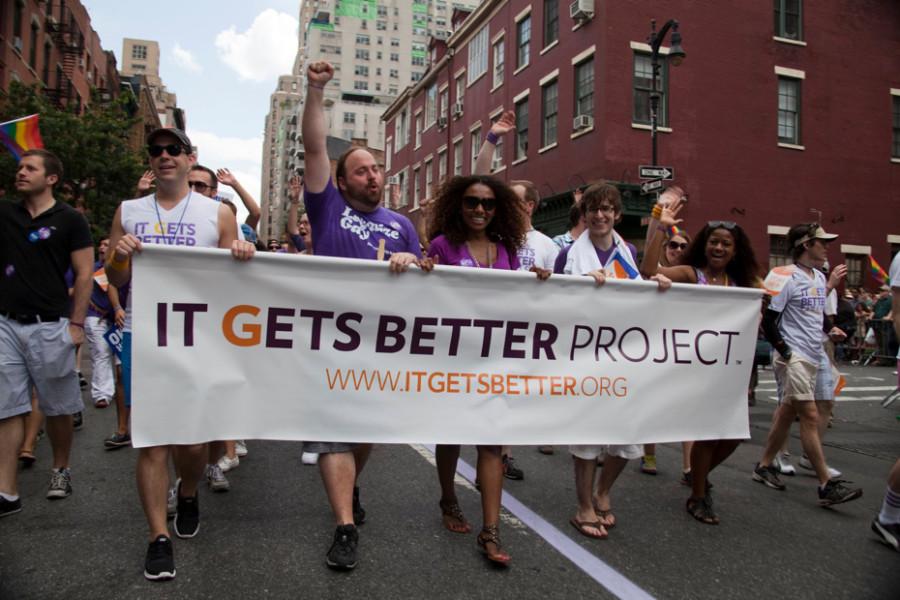Feinberg study shows ‘It gets better’ for LGBT youth
Source: It Gets Better Project on Facebook
The It Gets Better Project promotes activism to inspire struggling LGBT youth. A new Feinberg study has found psychological distress in LGBT adolescents indeed decreases as they age.
February 19, 2015
For struggling LGBT adolescents, activist and writer Dan Savage and a host of celebrities have promised, “It gets better.”
The idea was supported by a recent Feinberg School of Medicine study, which showed that LGBT people feel less psychological distress as they get older.
The study, originally published in the Journal of Adolescent Health, supports the concept behind Savage’s It Gets Better Project, in which people from around the country create videos with encouraging messages to people in the LGBT community. The project has become a well-known campaign, with more than 50,000 user-submitted videos.
“There was a lot of this public narrative about getting better, but there wasn’t a lot of data,” said Feinberg Prof. Michelle Birkett, lead author of the study. “It’s important to say that there is data about getting better.”
In the study, Birkett, Feinberg Prof. Michael Newcomb and Feinberg Prof. Brian Mustanski administered six surveys to just under 250 adolescents ages 16-20 over the course of three and a half years. Each survey asked the participants questions about their mental health and their experiences as LGBT youth.
The surveys were mostly done on a computer in the researchers’ lab, with few in-person interviews, Newcomb said.
“The fact that it was on a computer helps a person be more accurate in terms of what they’re reporting because sometimes if you are asking someone sensitive topics, they might underreport,” he said.
The authors found psychological distress decreased as participants got older. The study also found the more victimized a participant was when they were younger, the more distressed they felt going into adulthood.
“It’s great that we’ve been able to confirm a positive finding,” Birkett said. “To be able to say that in a longitudinal analysis doesn’t happen very often.”
Their study also showed differences in victimization between different races, with racial minorities experiencing higher levels of victimization.
Authors began recruiting participants for the study in 2007, Newcomb said, when there was very little known about LGBT youth. They began the study soon after the It Gets Better Project began gaining traction.
“Young people face different challenges than adults do,” Newcomb said. “It was difficult to understand how being LGBT as an adolescent is different.”
Newcomb explained the reason psychological distress decreases as one ages is may be because victimization and bullying decrease as one chooses more supportive environments to be in. As people get older, they have more control over how they live their lives and the people they surround themselves with, Newcomb said.
However, Weinberg senior Peter Cleary, co-president of the Rainbow Alliance, said he thinks people should be doing more than saying, “It gets better,” as it implies that getting better is a passive process. Instead, Cleary argued for support.
“One of the biggest things people can do is make the spaces that they occupy affirming spaces for LGBT people, whether that comes in words they use, or attitudes they express,” he said.
Following the study, Birkett recently published a study looking at the types of support LGBT people receive over time and how having support as an adolescent influences one’s health. She hopes to protect kids from further victimization, she said.
“I’m glad the message is getting out there and people are interested,” she said.
Email: [email protected]


